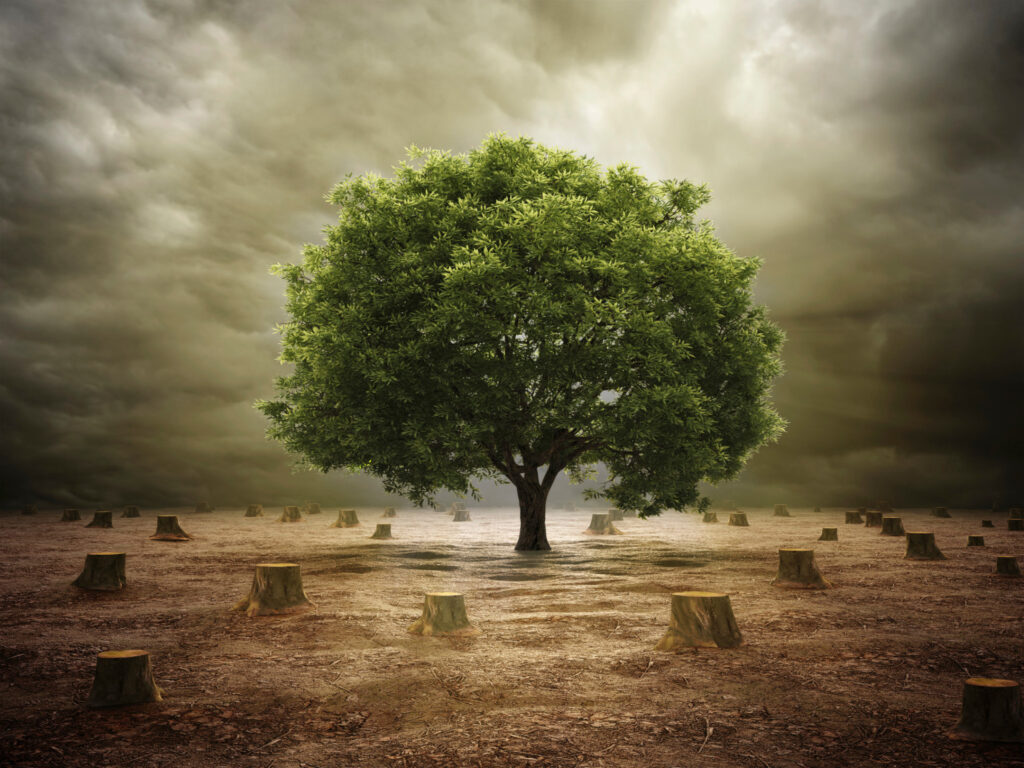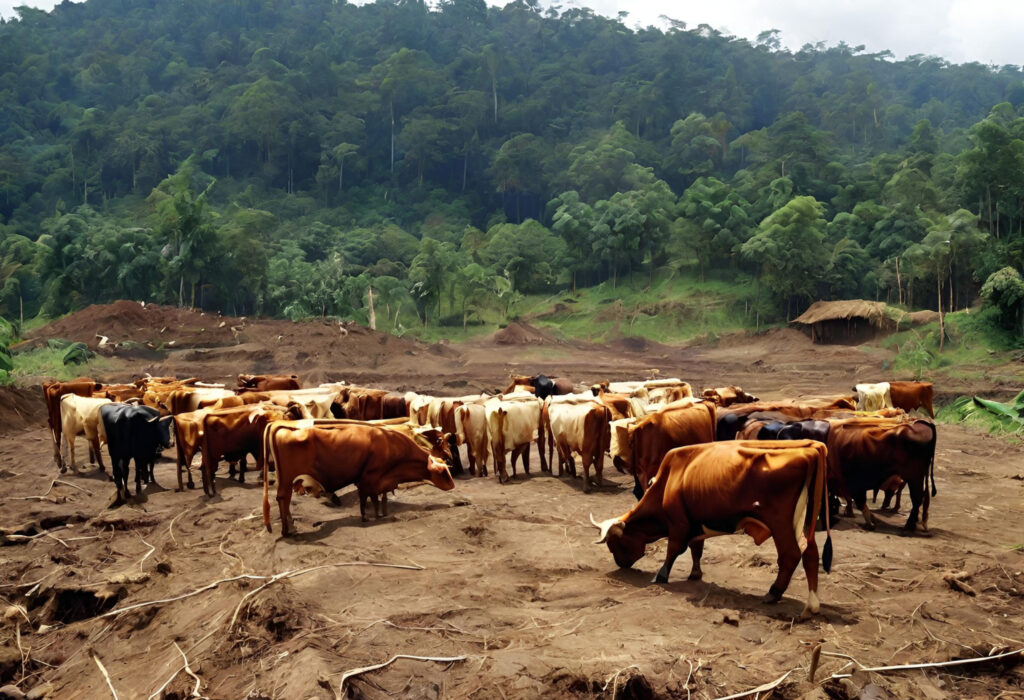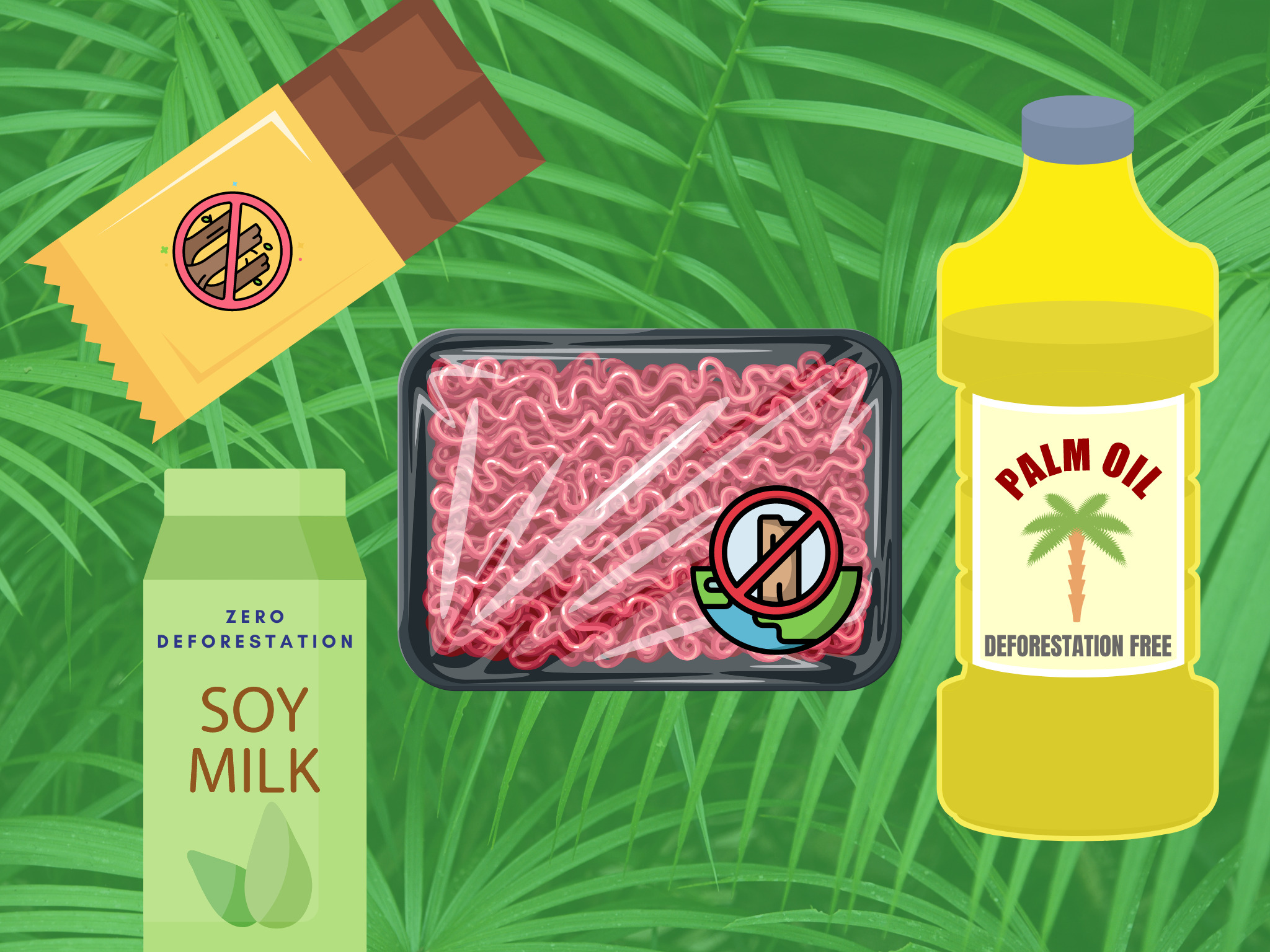UK to Ban Imports of Essential Products Linked to Illegal Deforestation, But Concerns Over Scale & Producers Remain
5 Mins Read
At COP28, the UK announced its intention to ban imports of everyday essentials linked to illegal deforestation, which will affect large companies with high turnovers. But environmental experts and campaigners have raised questions about the scope of the legislation, and whether it goes far enough.
A year after the EU announced its deforestation ban, its former member state has followed suit. The UK’s Department for Environment, Food & Rural Affairs (Defra) has set out its intention to prohibit the import of daily supermarket products that are linked to illegal deforestation, which puts restrictions on palm oil, cocoa, beef, leather and soy.
Announced on COP28’s Nature Day (December 9), the legislation is a secondary regulation, which is an additional law made under the primary law – in this case, the Environmental Act. The UK government says the deforestation ban will “protect the habitats of some of the world’s most precious and endangered species”, including orangutans, leopards, jaguars, tigers and others.
But climate activists have raised concerns about the incoming ban, particularly regarding its scope and scale, as well as its impact on producers who rely on forests.
Why the UK deforestation ban is important

The deforestation ban “will give British shoppers assurance that the goods they buy are not contributing to deforestation that violates the laws and regulations of the countries where they come from”, according to the UK government. The focus on agriculture comes as it’s the biggest driver of deforestation – it accounts for 75% of the total. Defra says an area the size of the UK is ploughed up every year to meet the country’s demand for commodities.
The products namechecked by the government include palm oil, soy and beef – together, they are responsible for 59% of all deforestation globally. While palm oil is the major driver of tropical deforestation, beef and soy are why Brazil tops the list of areas where most forests are felled, accounting for a third of the total share.
In the first six months of the year, the UK imported 13,700 tonnes of beef from Brazil, while 57% of the soybeans imported for animal feed came from the South American giant in 2019. In fact, that year, the UK brought in over a million tonnes of soy linked to deforestation in South America, making up 40% of the crop’s total imports.
This is why the forthcoming ban is important. The British government says it “marks a step change from voluntary approaches already in place, protecting the future of the world’s forests that we need to help tackle climate change, and their wildlife-rich canopies”. It ensures “shoppers can be confident that the money they spend is part of the solution, rather than part of the problem”, according to Environment Secretary Steve Barclay.
“This will give confidence to British retailers and their customers alike, helping retailers meet their ambitious targets on deforestation and enable a greater supply of deforestation-free products in the UK,” added Andrew Opie, food and sustainability director at the British Retail Consortium. “Tackling deforestation requires global cooperation and we look forward to seeing further detail as to how the legislation will align with European proposals.”
The EU ban he mentions was introduced last year, and included products like beef, soy, palm oil, wood, cocoa, coffee, charcoal, and rubber, as well as some leather and furniture. A similar measure, the Forest Act, was proposed in the US in 2021, but it was stalled until earlier this month when it was reintroduced by policymakers in the House and Senate.
What does the UK miss out on with its legislation?

While the EU was praised for its efforts to clamp down on deforestation, its law came with its own problems, particularly with regard to Indigenous communities and populations relying on food exports as a primary source of income. Indonesia, Malaysia and Brazil were among the critics, understandably, but so too were organisations like the WWF and Greenpeace, which said the EU’s definition of forest degradation wasn’t broad enough to include the conversion of primary forests to plantations. Moreover, the law allowed for clear-cutting if the land wasn’t converted to another use.
The UK faces similar issues. The government had promised that high-deforestation-linked imports would be banned back at COP26, but had failed to act until now. One of the main issues is that this doesn’t apply to larger companies: Defra says the legislation will affect businesses that have a global annual turnover of over £50M and use over 500 tonnes of regulated commodities per year.
While these companies will need to perform a due diligence exercise on their supply chains and face “unlimited variable monetary penalties”, environmental groups have criticised the scope of this ban. “Company turnover and local legality loopholes will still leave goods tainted with deforestation on our supermarket shelves,” said Alexandria Reid, senior global policy advisor at corporate watchdog Global Witness.
She lamented the fact that coffee wasn’t on the list of products included in the ban – the crop is also linked to high rates of deforestation. “Ministers need to add this product as soon as possible so the UK public can rest assured their morning brews are deforestation-free,” she said.
This was echoed by Clare Oxborrow, forests campaigner at Friends of the Earth, who said: “Products linked to illegal deforestation won’t be eradicated from UK supermarkets completely unless all high-risk commodities, including coffee, rubber and maize, are captured by the legislation.”
She added: “What’s more, the proposed law only accounts for illegal deforestation, which is notoriously difficult to determine and could see some countries weakening their own protections to reduce the number of products impacted by the ban.”
Reid noted that the UK’s legislation lags behind the EU’s, which bans products regardless of whether the deforestation practices they’re linked to are illegal. This can be seen in the EU’s landmark greenwashing ban too, finalised earlier this year, which prevents companies from making unsubstantiated environmental claims on products. The UK has no such law yet, though it has launched a guide to help companies avoid greenwashing. “We urge ministers to strengthen these laws to ensure we end commodity-driven deforestation by the 2025 global deadline.”
The timeline point is pertinent, as Sophie Bennett, senior forests campaigner at the Environmental Investigation Agency, pointed out: “The government has still not set a definite timeframe for laying the secondary regulations, only stating that they will be laid when parliamentary time allows.”
“Given the urgency and scale of the climate and nature crisis, the UK really needs to respond with the appropriate level of ambition,” said Oxborrow, whose organisation is “campaigning for a new due diligence law to hold all companies to account for environmental harms and human rights abuses in their supply chains”.



